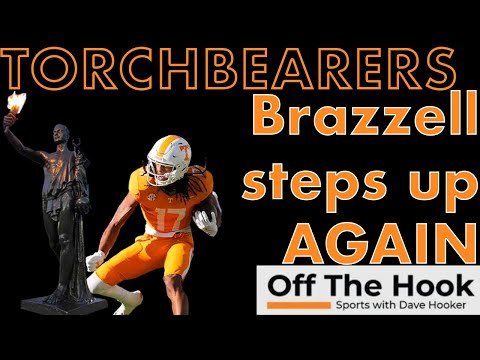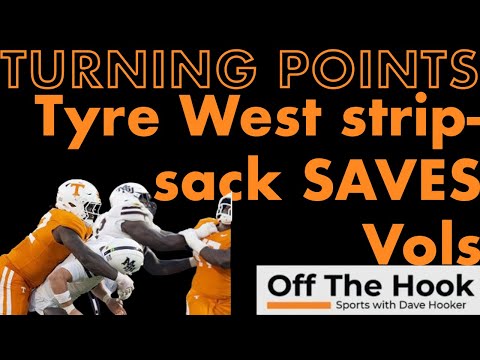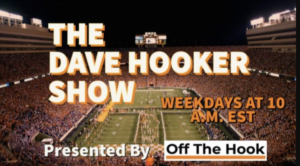Tennessee knows the feeling. The Vols aren’t the only one. Let’s go back.
November 13, 2021 – Auburn, Alabama.
It’s an example of one of many candidates for the title of the worst targeting calls in college football history.
Let’s set the stage. Auburn edge rusher T.D. Moultry sacked Mississippi State quarterback Will Rogers with under seven minutes to go in a one-possession game.
It would have given the Tigers a chance to come back and win. The sack would have made it third-and-long on the cusp of field goal range. Instead, after the play was reviewed and determined to be targeting, the Bulldogs were granted an automatic first down, marched the remainder of the field and scored to put the Tigers away for good.
A lot of variables go into winning a football game. No one play makes or breaks a game, but one play can vastly sway momentum. Moultry, in this instance, was simply playing football. His helmet collided with Rogers’ incidentally when Rogers moved his head to brace for the impact. There was zero malicious intentions on the side of Moultry.
Tennessee fans have seen the inverse of this. In their game against Alabama last season, Vols fans complained as Alabama defensive back Malachi Moore launched himself into the helmet of Hendon Hooker to no call. It wasn’t as game-changing as the Moultry instance, but still objectively egregious.
Watch the link above. Then watch this one. One was called targeting, one wasn’t.
That’s where the crux of the problem resides, said Tennessee offensive lineman Cooper Mays. For him, a call that relies on judgement as much as targeting should not warrant an automatic ejection.
“I would say the targeting rule is a little bit conservative,” Mays told Off The Hook Sports. “I think it should be a 15-yard penalty first, then if you do it again you get kicked out, but I don’t think you should base the whole remainder of the game based off of one play.”
There are too many instances to count where an iffy targeting call changed a game. In the NBA, a flagrant 2 foul warrants an ejection and, to and extent, the general populace has no problem with it.
That’s because its rare. It seems like there is a targeting call at least once per game nowadays. In many ways, the punishment just may not fit the crime.
“It’s hard to call somebody ejected from a game from a split-second body reaction,” Mays said. “You can tell when somebody says ‘screw it, I’m going to put my forehead, the crown of my helmet into somebody, but let’s be real, if you’re a defender and you see a running back tuck down and put the crown of his helmet towards you, you got no choice.”
“Your body’s natural reaction, to brace for impact is going to bring your head down, cradle you up too.”
Mays has never been ejected for targeting. It rarely affects offensive players, especially lineman.
But it’s an important opinion. College football is entering an age where players have more of a say in the game than ever before. Plenty share Mays’ opinion, but nothing has been done to this point.
Will that change soon? It’s hard to say. Targeting is one thing that people can agree upon. The intent is rational, but the execution seems overboard.
Just ask T.D. Moultry.









